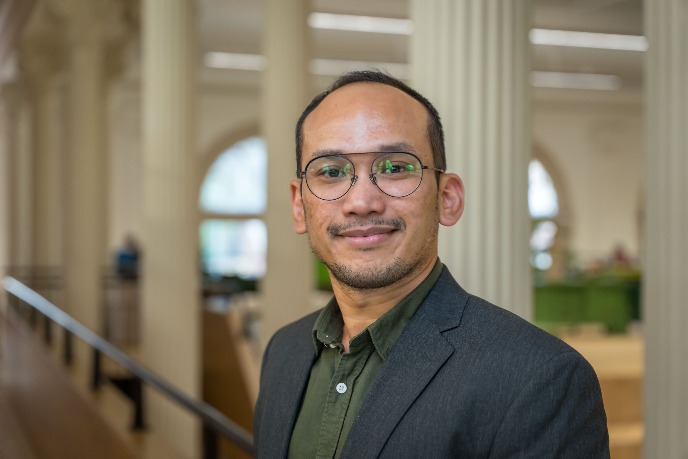PhD defence Eko Rahmadian: Technologies for smart & sustainable tourism
| When: | Fr 15-03-2024 13:30 - 15:00 |
| Where: | The Beurs, Wirdumerdijk 34, Leeuwarden (also online) |
It is possible to follow the defence online via the livestream.
The programme:
|
13:30 - 14:00
|
Eko will give a layman's talk
|
|
14:00 - 15:00
|
Public defence ceremony
|

Digital Twin, Artificial Intelligence and more: Technologies for more sustainable tourism
The tourism industry is increasingly using big data to gain valuable insights and enhance decision-making processes, including achieving sustainability. Tourism not only brings a lot of benefits but also could threaten the environment and (local) communities. Managing sustainable tourism is complex, especially when it comes to the use of big data and advanced technology such as Digital Twin (DT). DT technology combines big data with machine learning (ML), artificial intelligence (AI), and the Internet of Things (IoT). The use of big data and DT technology poses challenges related to governance, privacy, ethics, and accountability.
Eko Rahmadian, PhD student in Governance and Innovation at Campus Fryslân, has developed a big data governance framework and a Documentation Framework for Architecture Decisions (DFAD) to improve the use of big data and DT technology for smart and sustainable tourism. Eko will be awarded a PhD for his research on March 15th.
"A big data governance framework is important for organisations to mitigate any risks. However, not all organisations realise it is critical. With the frameworks I proposed, we can ensure effective governance providing a wide and comprehensive perspective, both technical and non-technical, including when it comes to the use of sensitive data such as mobile phone data," says Eko. For his research, he conducted a field study in the Statistics Indonesia office in Jakarta and interviewed key stakeholders amidst the pandemic.
How can we use Digital Twin technology?
Results from the fieldwork were encouraging, showing that practitioners found the frameworks useful. It helps them track decisions from the early stages, identify relevant stakeholders at each step, and mitigate potential risks. The frameworks foster effective communication and coordination and support organisations in identifying relevant laws and regulations. It's a practical tool that supports better decision-making, enhances sustainability efforts, and promotes better collaboration in the dynamic landscape.
His research also shows that Digital Twin holds substantial potential for implementation within the realm of smart tourism and smart cities. Stakeholders can create a virtual representation of the flow of tourist activities and understand their impact on infrastructure and the environment, so that they can mitigate ecological risks and overtourism.
Eko Rahmadian (1984)
Eko Rahmadian studied Urban Management and Development at Erasmus University Rotterdam and started his PhD research at Campus Fryslân in 2019. After completing his study, Eko will be back working at the International Relations Department of Statistics Indonesia in Jakarta. Currently, Eko works as an advisor for Centraal Bureau voor de Statistiek, in Den Haag, where applies his PhD research to practical projects.
